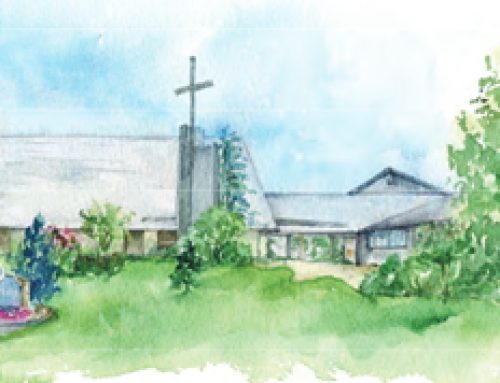FROM THE PASTOR’S DESK
Dear Parishioners,
Aristotle has written, “It is easy to become angry. Anyone can do it. But to become angry at the right moment, to the right degree, for the right purpose, in the right manner, is difficult. Only the wise person can accomplish it.” What is implied in Aristotle’s words is the realization that there are different kinds of anger. There is a destructive anger, which is unfocused, irrational, and wasteful. But there is also a constructive anger that is precise, appropriate, and useful. Aristotle believed that constructive anger is valuable. So did Jesus.
In today’s gospel we see Jesus using constructive anger to motivate Himself in the dramatic action in the temple. Now we are not completely sure what Jesus was angry at. He was not angry at the temple itself, for as a good Jew the temple was the center of his religious life, and He prayed in the temple often. He could not be angry at the fact that people were selling animals, because animals were required by Jewish law for sacrifice. Perhaps He was angry at where the animals were being sold or how they were being sold. Perhaps they were sold in an unfair way that discriminated against the poor. Whatever the reason was, Jesus perceived in the action of selling some injustice, and his response to that injustice was anger. Anger motivated Jesus to act against what he believed was wrong.
The example of Jesus reminds us that, as children of God, we are required to do more than pray quietly and promote a peaceful inner disposition. We are also required to act on behalf of what is right, to oppose every evil, oppression, and discrimination. We do these things because we believe that they are contrary to God’s kingdom. In this action against evil, there is a kind of anger that is very useful. Constructive anger is a virtue when it is exercised on behalf of the kingdom. Now this can surprise us because some of us were taught that anger is a sin. But only destructive anger is sinful. Constructive anger is not a sin. It is a positive and valuable part of human life.
Look at your own life over the past year. If you cannot think of any time when you were angry, that is not necessarily a good thing. Never being angry does not make us holy; in fact, it might indicate that we are indifferent, indifferent to the injustice and evils that are a part of our world. If, on the other hand, you look over the past year and realize that you are always angry, that is not a good thing either. When we suddenly burst into rage at the slightest comment, when we explode without any reason, when we discover that we are living constantly with an internal tension, that is an indication that there are unresolved issues in our life that need to be faced. That is a sign that destructive anger controls us. And destructive anger needs to be eliminated.
But contrary to never being angry or always being angry, constructive anger is healthy. It helps us identify what is wrong, and it motivates us to work against it. If you recognize in your life a growing tendency toward self-indulgence and selfcenteredness, constructive anger can motivate you to act, to turn things around. If you realize that you are experiencing abuse or manipulation in a relationship, constructive anger can force you to demand a change or to abandon the relationship altogether. If you recognize the policies of your job, of your church, or of our society discriminate against the poor or oppress the weak, constructive anger can cause you to speak out, to organize, to work for doing what is right.
There is no doubt that Jesus is the Prince of Peace. But he is also the Lord of Justice. Jesus did not sit meekly by when he saw evil being imposed on others. Jesus was not afraid of constructive anger. He used it to build the kingdom. So should we.
Peace,
Fr. Monteleone
To read the complete bulletin click here



